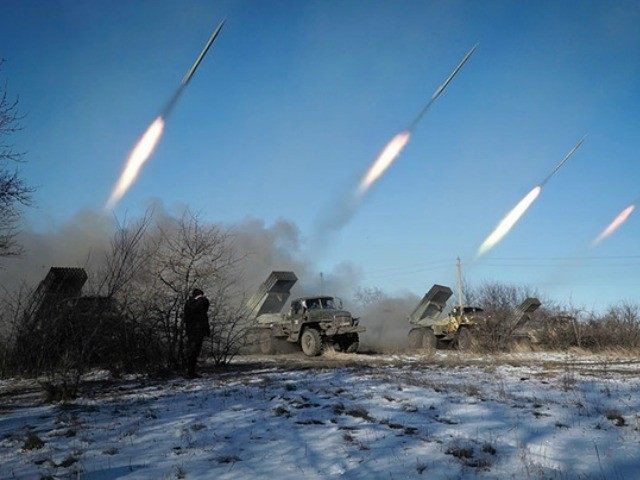Economic woes may force Russia to shrink its military budget by 10 percent in 2015. State owned defense conglomerate Rostec vowed to keep an eye on military spending this year while announcing a plan to give Iran Antey-2500 missiles.
“It could shrink a bit, within 10 percent, but a decision is not yet made,” said chief executive Sergei Chemezov.
Due to the economy, Finance Minister Anton Siluanov announced “a 10 percent cut across all sectors of government spending except for defense.” Russia is still sending troops and weapons into east Ukraine to support the pro-Russian separatists. Moscow has consistently denied the accusations, but the proof is in the photos and videos that emerged throughout 2014. Last week, the European Union finally admitted Russian troops are operating in Ukraine.
But it appears those cuts might not be enough to help the economy. On Monday, the Russian ruble “was trading at 64 against the dollar.” Defense used to be a lucrative outlet for Russia, but the companies “are struggling to access global financial markets, in the wake of Western sanctions.” The West passed numerous sanctions against Russians and Russian companies due to the war in Ukraine, including Chemezov. Russia could make over $40 billion due to future sales of weapons to China, India, the Middle East, and Latin America.
“Sanctions have given us a kick to produce our own (equipment),” admitted Chemezov. “Before sanctions we procured from Ukraine, which has many defense plants and factories. By 2017, we plan to substitute all our imports.”
Despite the budget, Moscow offered Iran “its latest Antey-2500 missile defense systems.” Moscow originally agreed to supply S-300 rockets, but the United States and Israel argued these “could be used to shield Iran’s nuclear attacks from air strikes.” Russia quickly abandoned the offer, which resulted in a lawsuit from Iran.
“As far as Iran is concerned, we offered Antey-2500 instead of S-300,” he stated. “They are thinking. No decision has been made yet.”
The United Nations passed an embargo in 2010 that “bans the supply, sale or transfer to Iran of missiles or missiles systems.” There has yet to be a response from the UN, US, or Israel about the new deal, especially since the Antey-2500 is “an upgraded version of the S-300 air defense system.” But the announcement should not be a shock since Russian Defense Minister Sergey Shoygu visited Tehran in January to discuss a closer military relationship.

COMMENTS
Please let us know if you're having issues with commenting.